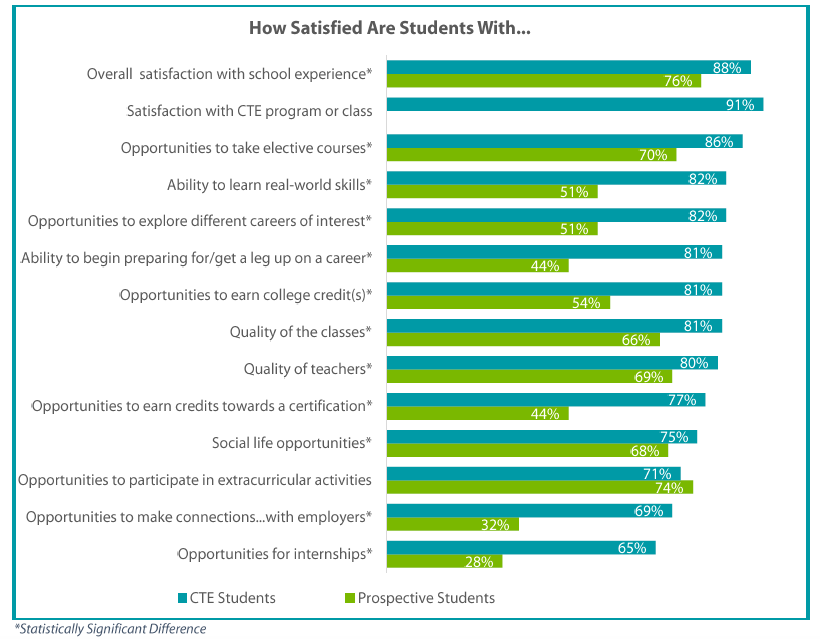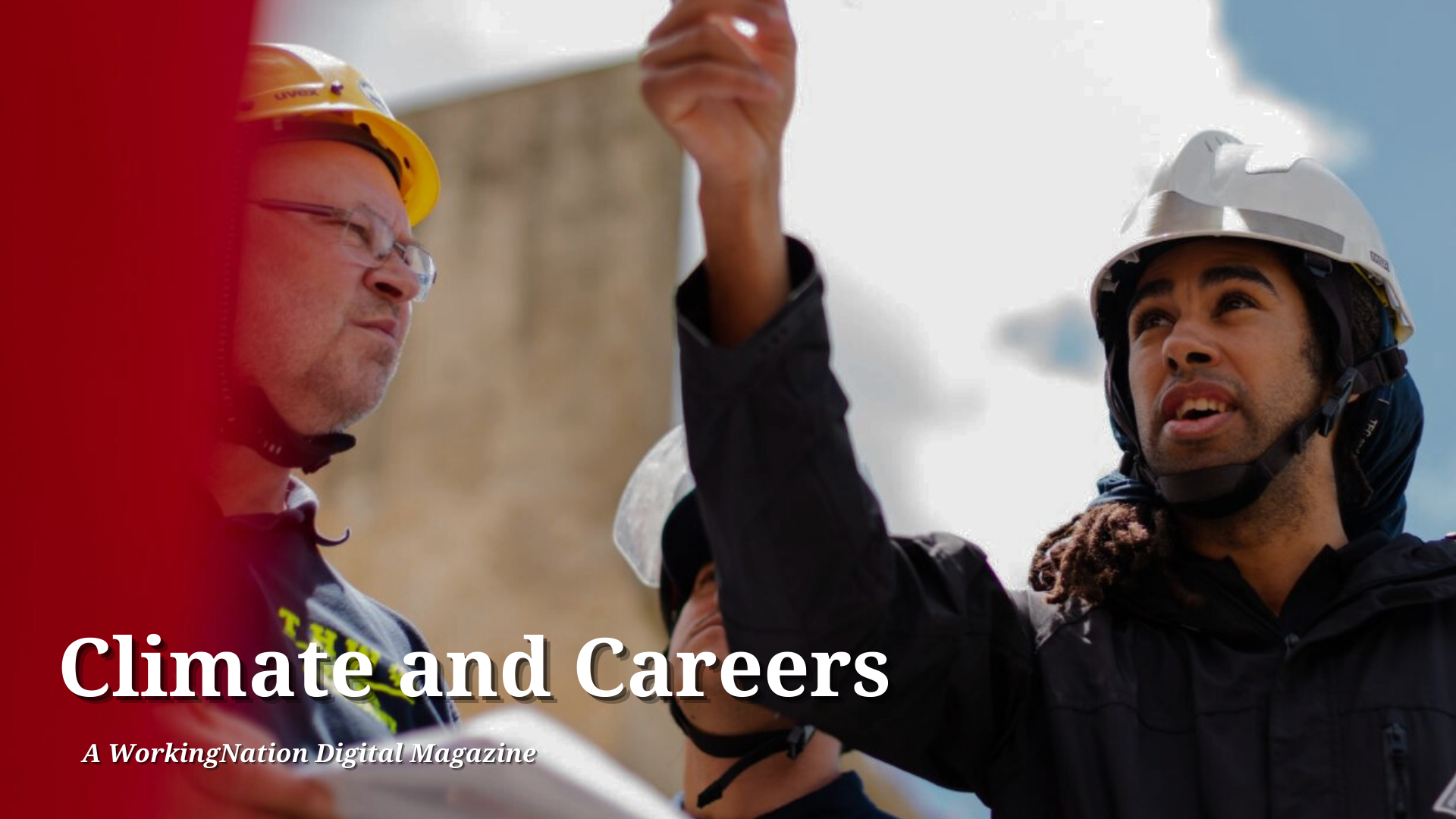As the unemployment rate levels off to what many economists consider “full employment,” more and more the conversation about jobs has been turning to the issue of how fast jobs are changing and the need to properly educate and train the current and future workforce for those changes.
As technology advances in nearly all fields, the demand for highly skilled workers is at an all-time high. The problem is traditional education is not keeping up. That’s why awareness and advocation for education that thinks outside the box and gives students real-world skills and a direct path to a good-paying job is becoming more important than ever.
Career Technical Education (CTE) has made great strides in the past decade to teach students real-world knowledge and skills while boasting a 93% graduation rate compared to the national average of 82%.
Recent findings from a national survey conducted by the nonprofit, Advance CTE, show that CTE students and parents are more satisfied with their education experience by nearly every measure compared to those not involved with CTE. This was particularly true for aspects related to career readiness such as opportunities to explore careers, gain real-world skills and network with employers.

In addition to understanding how CTE was performing for students and parents in the program, CTE leaders also learned what three elements of CTE was most important to prospective parents and students. They include:
- CTE allows students to come out of high school with a real-world skill.
- CTE classes allow students to earn college credits while still in high school.
- CTE programs have partnerships with employers in their communities…who may provide training, mentorship, opportunities for internships, networking and even entry-level jobs.
“This report provides us with valuable insights into what students and parents want out of their education, and how CTE can successfully meet those needs,” said Kimberly Green, Executive Director of Advance CTE. “We have worked hard to transform CTE to meet the need of the modern economy.”
While the findings are very exciting for CTE leaders and advocates, CTE continues to struggle with awareness. Just under half (47%) of prospective parents and students report having heard of Career Technical Education. Meanwhile, 68% have heard of “vocational education.” This has contributed to CTE enrollment remaining stagnant over the last decade, even as demand for a skilled workforce has increased.
“There is a perception problem in promoting vocational education — or Career Technical Education, as we call it in the U.S. — and it’s hurting our students and our society,” said David Etzwiler, CEO of the Siemens Foundation. “We hear time and again about the need for skilled workers and the realities of careers requiring postsecondary education — not always a traditional 4-year degree — in order to fill these demands. These results shed light on better ways to communicate the very substantial benefits of Career Technical Education as a pathway to college and a thriving career.”
As of late, however, CTE has been getting more attention as a solution to the skills gap problem that continues to grow in our country.
In late March, Mike Rowe former host of “Dirty Jobs” and advocate of the skilled trades through his foundation mikeroweWORKS, spoke before a congressional subcommittee that was looking into what changes can be made to strengthen CTE and better prepare students for the workforce.
During the panel discussion, Rowe argued that there needs to be a shift in the perception that a 4-year degree is the best path for most people. It’s that belief, he said, that has come at the expense of community colleges, trade schools, and apprenticeship programs and has helped widen the skills gap.
“If you want to make America Great Again, you have to make work cool again,” Rowe told them. “You have to change the image of the opportunity.”
As the gap continues to widen and companies across the country are unable to fill jobs, state leaders have started to take notice of the benefits of CTE. The problem a lot of them face is finding the qualified teachers for CTE courses. According to a Stateline analysis of federal data, two-thirds of states are currently reporting a shortage of CTE teachers in at least one specialty.
Factors contributing to this problem include:
- Teacher salaries are too low to compete with salaries in technical fields.
- Strict teacher licensing rules that require teachers must have a bachelor’s degree to get licensed, although many people in fields such as nursing or automotive technology only hold a two-year degree.
- Too few young people are specializing in career and technical education in college.
- It’s hard to attract teachers to isolated schools in rural areas.

Stateline’s report found states are working to alleviate some of these barriers in order get to students the education they know is needed to fill jobs available in their communities.
Tennessee, for example, allows people who have worked in industry to count their years of work experience as years of teaching experience, which, in turn, gets them a higher salary than a beginning teacher, to help fill much-needed teaching positions.
Five senators in Minnesota are proposing revamping the entire teacher licensing system in the state that would allow someone with an associate degree, an industry credential or at least five years’ work experience to get a one-year license to teach CTE.
In recent years, the Virginia Legislature and the boards of education in New York and South Dakota have adjusted CTE licensing requirements to make it easier for people to start teaching. Last year, North Carolina and Virginia created licenses that allow technical workers to teach part time. People from industry in Alabama, Florida, Kentucky and Ohio already have a similar option.
The awareness and recent push towards CTE courses in high schools is very promising and while state leaders work to get students the teachers they need to offer these courses, Advance CTE is working with four states were chosen through a competitive process on outreach and recruitment of students.











